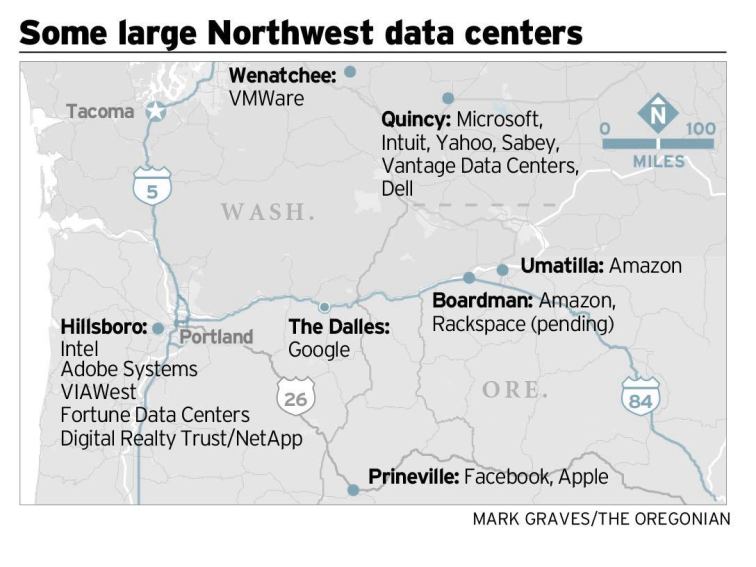MTP readers will recall that Internet companies in general and streaming in particular uses a phenomenal amount of electricity. As part of their public gaslighting strategy, the big Internet companies like Amazon, Google, Facebook and Apple try to make their shareholders and users believe that this hogging at the energy trough is all “green”. One way they accomplish this is by locating their huge honking data centers on or near hydroelectric projects (largely funded by taxpayers) in places like the Federal Columbia River Power System in Washington and Oregon–that would be the same Oregon that is represented in the U.S. Senate by one Ron Wyden, the best friend Big Tech ever had and the worst enemy artists ever had. Just a coincidence.

Another way that data hogs distance themselves from the truth is by various carbon offsets (I wrote about Google’s head fake in Europe along these lines, for example). Presenting a green image is even more important with the rise of the ESG ratings for publicly traded companies whose executives suck down millions of dollars in the public stock markets like…Spotify. ESG is a very important component of a public company’s shareholder messaging as I wrote about on MusicTech.Solutions and discussed in a MusicAnswers podcast.
And it was only a matter of time before Spotify’s desire to rig their ESG scores by trading in carbon offsets got them into rougher company than anyone at Spotify is accustomed to dealing with. Particularly since they never did show settlements with the Bandidos or other connected folk and pistoleros.
BP and Spotify were among companies who bought carbon credits at risk of being implicated in potential Uyghur forced labour, an investigation has found.
The credits were sourced from the Bachu carbon project, which was developed by South Pole, the world’s largest carbon consultancy. The project focussed on a biomass power plant in Xinjiang, China, which said it would lower global carbon emissions by using waste cotton stalks from nearby fields to generate electricity.
South Pole, whose chief executive, Renat Heuberger, stood down on Friday, marketed credits for their employment benefits for women and minority ethnic people and support for the UN sustainable development goals, with the claims often echoed by companies that bought them to offset their carbon footprints…
WWF, Spotify, the tennis player Dominic Thiem, Ecologi and Hilton Hotels were among others that bought credits from the project, according to the Gold Standard registry and South Pole sales data. Not all were directly sold the credits by South Pole. WWF and Ecologi stopped supporting the scheme in 2019, Spotify in 2020, they told the Guardian. Thiem and Hilton Hotels did not respond to questions.
We do not know what prompted Spotify to stop trading in carbon credits or what replaced the Bachu carbon project in their carbon credit portfolio after 2020. But I can’t help noticing something else that happened in 2020 when Spotify switched out of profiting from this particular brand of Uyghur exploitation–the US House of Representatives started working on the Uyghur Forced Labor Prevention Act. That legislation expanded the existing ban on trading in goods produced by forced labor in the Smoot-Hawley Tariff Act from the 1930s and other importation bans by the Department of Homeland Security and Customs and Border Protection. The Uyghur Forced Labor Prevention Act was passed into law and signed by President Biden in 2021. It would be worth knowing what Spotify is now using for carbon offsets to make their electricity hoggery seem not only palatable but actually morally superior.
Of course, you would have to live under a rock not to know about slave labor in China, but maybe you wouldn’t care that much if you also thought artists should work for you for free. Well, you can’t make an omelet without breaking a few eggs.

You must be logged in to post a comment.